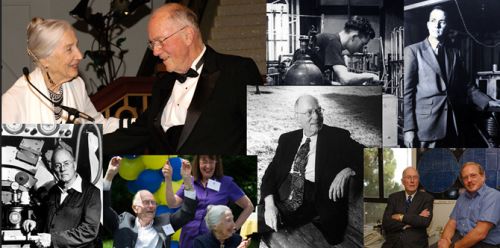
BERKELEY — Charles Hard Townes, a professor emeritus of physics at the University of California, Berkeley, who shared the 1964 Nobel Prize in Physics for invention of the laser and subsequently pioneered the use of lasers in astronomy, died early Tuesday, Jan. 27, in Oakland. He was 99 and in failing health, and died on his way to the hospital.
“Charles Townes embodies the best of Berkeley; he’s a great teacher, great researcher and great public servant,” said UC Berkeley Chancellor Nicholas Dirks on the occasion of a campuswide celebration of Townes’ 99th birthday last July 28. “As we celebrate this 99-year milestone and a career spanning nearly 80 years, we can only be impressed by the range of his intellectual curiosity, his persistence and his pioneering spirit.”
Until last year, Townes visited the campus daily, working either in his office in the physics department or at the Space Sciences Laboratory.
“Charlie was a cornerstone of the Space Sciences Laboratory for almost 50 years,” said Stuart Bale, director of the lab and a UC Berkeley professor of physics. “He trained a great number of excellent students in experimental astrophysics and pioneered a program to develop interferometry at short wavelengths. He was a truly inspiring man and a nice guy. We’ll miss him.”
Read the full press release from UC Berkeley

